November 9 stands as one of history’s most eventful days, witnessing the rise and fall of empires, groundbreaking discoveries, and moments that shaped our modern world across centuries of human achievement.
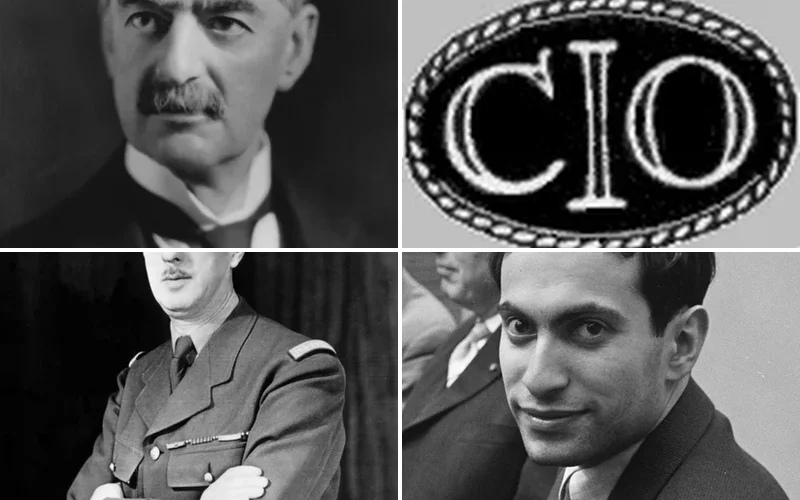
Politics and Government Events on November 9
1918 – Kaiser Wilhelm II Abdicates After German Revolution
Kaiser Wilhelm II of Germany formally abdicated his throne following the German Revolution that swept across the nation. The dramatic end of his reign marked the collapse of the German Empire after four years of devastating world war.
Germany was immediately proclaimed a republic, fundamentally transforming the political landscape of Central Europe. This pivotal moment reshaped European power dynamics and set the stage for the tumultuous decades that followed.
1989 – Fall of the Berlin Wall

East Germany opened checkpoints in the Berlin Wall, allowing its citizens to travel freely to West Berlin for the first time in decades. Thousands of East Germans flooded through the barriers as guards stood by, overwhelmed by the historic moment.
The fall of the wall symbolized the end of the Cold War division of Europe. This monumental event paved the way for German reunification and the eventual collapse of communist regimes across Eastern Europe.
1953 – Cambodia Gains Independence from France
The Kingdom of Cambodia achieved full independence from French colonial rule on this historic date. King Norodom Sihanouk successfully negotiated the end of the French protectorate that had controlled the nation since 1863.
This independence marked the beginning of Cambodia’s modern political era. The newly sovereign nation faced the challenge of establishing stable governance while navigating the complex geopolitical landscape of Southeast Asia.
1917 – Balfour Declaration Published
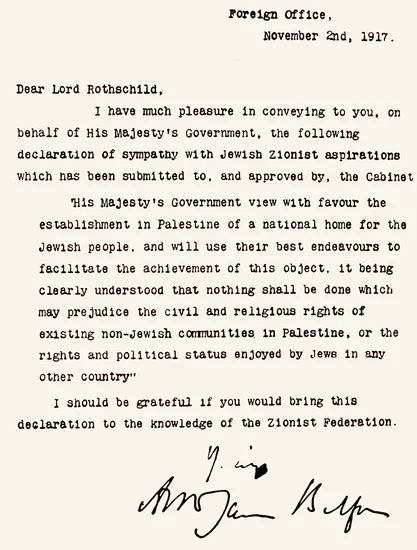
The British government’s Balfour Declaration appeared in The Times newspaper, formally announcing support for a Jewish homeland in Palestine. Foreign Secretary Arthur Balfour’s letter to Lord Rothschild fundamentally altered Middle Eastern politics.
The declaration promised British support for establishing a national home for Jewish people in Palestine. This diplomatic document would profoundly influence the region’s future and contribute to decades of conflict and negotiation.
1901 – Prince George Becomes Prince of Wales
Prince George, Duke of Cornwall, was created Prince of Wales and Earl of Chester, positioning him as heir apparent to the British throne. The future George V received these ancient titles following the death of Queen Victoria earlier that year.
This formal investiture confirmed the royal succession during a period of significant imperial expansion. Prince George would later guide Britain through World War I and the transformation of the British Empire.
Military and Naval History on November 9
1914 – SMS Emden Sunk in Battle of Cocos
The German light cruiser SMS Emden met its fate when HMAS Sydney destroyed it during the Battle of Cocos. The Emden had been terrorizing Allied shipping in the Indian Ocean since the war’s outbreak.
Captain Karl von Müller’s vessel had captured or sunk numerous merchant ships before this decisive encounter. The battle eliminated one of Germany’s most effective commerce raiders and secured vital shipping lanes for the Allied forces.
1942 – German Forces Reach Volga at Stalingrad
German 6th Army forces under General Friedrich Paulus finally reached the Volga River bank, capturing ninety percent of the ruined city of Stalingrad. The German advance split the remaining Soviet defenders into two narrow pockets along the riverfront.
This represented the high-water mark of German expansion into the Soviet Union. However, the Wehrmacht’s apparent victory would soon transform into one of history’s most devastating military defeats.
1943 – United Nations Relief Organization Founded
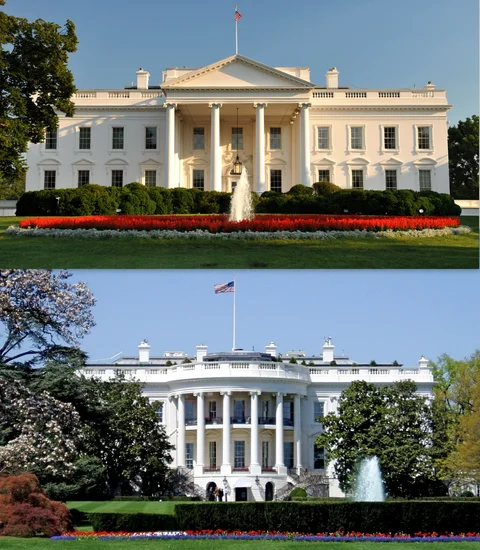
Representatives from forty-four nations gathered at the White House to sign the agreement establishing the United Nations Relief and Rehabilitation Administration. This international organization aimed to provide aid to war-torn regions and displaced populations.
The signing ceremony marked a crucial step toward post-war international cooperation. UNRRA became the precursor to many modern humanitarian organizations and established principles for international disaster relief.
1923 – Nazi Beer Hall Putsch Crushed
Munich police and government troops decisively crushed Adolf Hitler’s attempted Nazi Beer Hall Putsch in Bavaria. The failed coup resulted in sixteen deaths and the arrest of Hitler and other Nazi leaders.
This early defeat temporarily halted Nazi political ambitions but ultimately provided Hitler with a platform for his trial. The putsch’s failure forced the Nazi Party to pursue power through legal political channels rather than violent revolution.
Science and Discovery Milestones on November 9
1994 – Darmstadtium Discovered
Scientists successfully synthesized darmstadtium, a new superheavy chemical element with atomic number 110. The discovery occurred at the GSI Helmholtz Centre for Heavy Ion Research in Germany through particle accelerator experiments.
This artificial element exists for only microseconds before radioactive decay destroys it. The achievement advanced understanding of nuclear physics and expanded the periodic table’s heaviest elements.
1967 – Apollo 4 Launches First Saturn V
NASA successfully launched the unmanned Apollo 4 test spacecraft atop the first Saturn V rocket from Cape Kennedy, Florida. The massive rocket performed flawlessly during its maiden voyage, validating the design for future lunar missions.
This test flight proved the Saturn V’s capability to propel heavy payloads toward the Moon. The successful launch brought the Apollo program significantly closer to achieving President Kennedy’s goal of lunar landing.
2005 – Venus Express Mission Launches

The European Space Agency’s Venus Express mission launched from Baikonur Cosmodrome in Kazakhstan, beginning its journey to study Earth’s mysterious twin planet. The spacecraft carried sophisticated instruments to analyze Venus’s atmosphere and surface conditions.
This mission would provide unprecedented insights into Venus’s extreme greenhouse effect and atmospheric dynamics. The data collected helped scientists better understand planetary climate systems and atmospheric evolution.
2023 – World’s First Whole Eye Transplant
Surgeons at NYU Langone Health announced they had successfully performed the world’s first whole eye transplant on a human patient. The groundbreaking procedure involved transplanting an entire eye and part of the face to a construction worker injured in an electrical accident.
While the patient did not regain vision, the transplanted eye showed signs of health and blood flow. This medical milestone opened new possibilities for treating severe eye injuries and advancing transplant medicine.
Cultural and Arts Events on November 9
1936 – First Giant Panda Enters United States
American fashion designer Ruth Harkness successfully captured a nine-week-old giant panda cub in Sichuan Province, China. The cub, named Su Lin, became the first live giant panda to enter the United States.
This historic moment sparked American fascination with giant pandas that continues today. Harkness’s achievement challenged traditional expedition methods and highlighted the importance of wildlife conservation efforts.
1945 – Soo Bahk Do Martial Arts Founded
Hwang Kee established Soo Bahk Do and the Moo Duk Kwan martial arts school in Korea. This traditional Korean martial art emphasized both physical techniques and philosophical principles of self-improvement.
The founding of these martial arts systems helped preserve Korean cultural traditions during the post-war period. Soo Bahk Do would later spread internationally, influencing martial arts development worldwide.
1985 – Garry Kasparov Becomes Youngest World Chess Champion

Twenty-two-year-old Garry Kasparov defeated fellow Soviet Anatoly Karpov to become the youngest World Chess Champion in history. The intense match captivated the chess world and established Kasparov as a dominant force.
Kasparov’s victory marked a generational shift in competitive chess and brought new energy to the ancient game. His dynamic playing style and charismatic personality helped popularize chess globally during the 1980s.
Religious and Social Events on November 9
1938 – Kristallnacht Pogrom Begins

Nazi authorities orchestrated Kristallnacht, a coordinated attack on Jewish communities throughout Germany and Austria. The Nazis used the assassination of German diplomat Ernst vom Rath by Herschel Grynszpan as justification for the violence.
Synagogues burned, Jewish businesses were destroyed, and thousands of Jewish men were arrested and sent to concentration camps. This night of terror marked a significant escalation in Nazi persecution of Jewish people.
1965 – Catholic Worker Protests Vietnam War
Roger Allen LaPorte, a member of the Catholic Worker Movement, set himself on fire in front of the United Nations building to protest American involvement in the Vietnam War. The twenty-two-year-old activist died from his injuries the following day.
LaPorte’s self-immolation shocked the American peace movement and drew international attention to anti-war protests. His sacrifice highlighted the moral anguish many Americans felt about the escalating conflict in Southeast Asia.
1940 – Warsaw Receives Military Honor
The Polish government-in-exile awarded Warsaw the Virtuti Militari, Poland’s highest military decoration, for the city’s heroic defense during the 1939 siege. This unprecedented honor recognized the courage of Warsaw’s defenders and civilian population.
The award symbolized Polish resistance to Nazi occupation and maintained national morale during the darkest period of World War II. Warsaw’s recognition inspired continued resistance efforts throughout occupied Poland.
Business and Economic Events on November 9
1960 – Robert McNamara Named Ford President
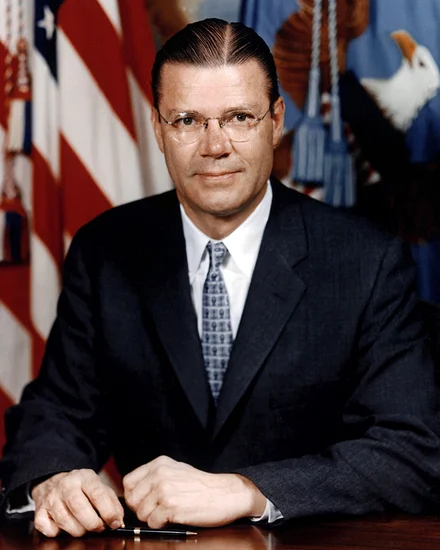
Robert McNamara became the first non-Ford family member appointed president of Ford Motor Company. His appointment represented a significant shift toward professional management in American automotive industry leadership.
McNamara resigned just one month later to join President-elect John F. Kennedy’s administration as Secretary of Defense. His brief tenure at Ford demonstrated the growing influence of business executives in government service.
1998 – Largest NASDAQ Settlement in History
A federal judge ordered thirty-seven U.S. brokerage houses to pay $1.03 billion to compensate NASDAQ investors for price fixing. This represented the largest civil settlement in American history at the time.
The settlement addressed systematic manipulation of stock prices that had cost investors billions of dollars. This landmark case led to significant reforms in securities trading and market regulation.
1935 – Committee for Industrial Organization Founded

Eight trade unions from the American Federation of Labor established the Committee for Industrial Organization in Atlantic City, New Jersey. This organization would later become the Congress of Industrial Organizations, transforming American labor relations.
The CIO’s formation represented a new approach to labor organizing based on industrial rather than craft unions. This strategy would prove instrumental in organizing mass production industries during the Great Depression.
Transportation and Infrastructure on November 9
1906 – Roosevelt Inspects Panama Canal
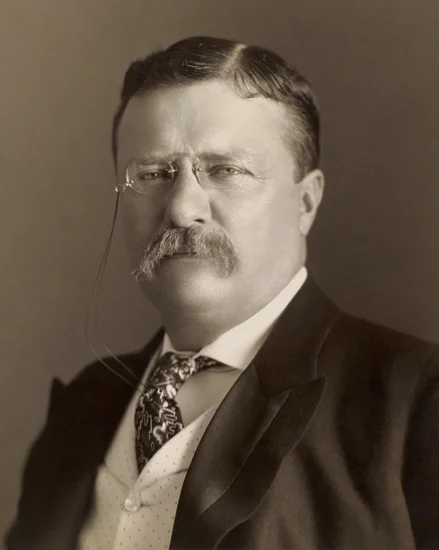
President Theodore Roosevelt became the first sitting U.S. President to travel outside the country officially when he departed to inspect Panama Canal construction progress. His unprecedented journey demonstrated the canal’s strategic importance to American interests.
Roosevelt’s hands-on approach to the massive engineering project helped maintain political support for the expensive undertaking. His visit emphasized American determination to complete this vital link between the Atlantic and Pacific oceans.
1965 – Great Northeast Blackout
A massive power failure plunged several U.S. states and parts of Canada into darkness for up to thirteen hours. The Northeast blackout affected over thirty million people and exposed vulnerabilities in interconnected electrical power systems.
The blackout began with a relay malfunction in Ontario and cascaded through the regional power grid. This event led to significant improvements in electrical grid design and emergency response procedures.
1912 – Great Lakes Storm Reaches Peak Intensity
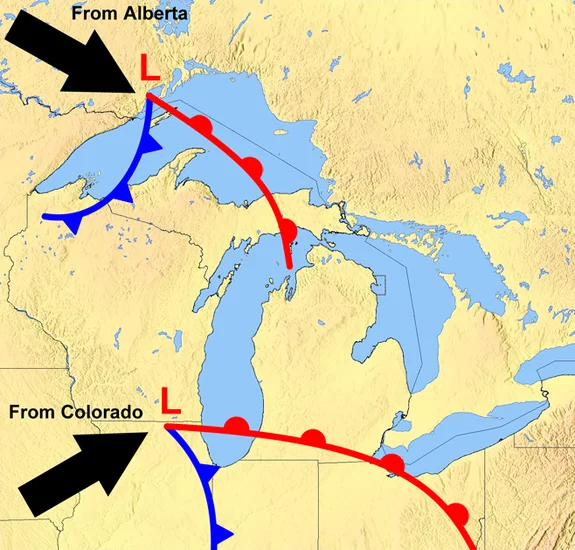
The Great Lakes Storm of 1913 reached its greatest intensity after beginning two days earlier. This devastating natural disaster destroyed nineteen ships and killed more than 250 people across the Great Lakes region.
The storm generated hurricane-force winds and massive waves that overwhelmed even the largest vessels. This tragedy led to improved weather forecasting and safety regulations for Great Lakes shipping.
Sports and Recreation on November 9
1979 – NORAD Nuclear False Alarm
NORAD computers and the Alternate National Military Command Center detected what appeared to be a massive Soviet nuclear strike against the United States. Military officials scrambled to verify the threat before discovering the alert was caused by a computer malfunction.
After reviewing satellite data and early-warning radar systems, commanders cancelled the alert within minutes. This dangerous false alarm highlighted the risks of relying on automated systems during the Cold War’s tense atmosphere.
1970 – Vietnam War Supreme Court Decision
The Supreme Court voted 6-3 against hearing a case that would have allowed Massachusetts to enforce its law granting residents the right to refuse military service in undeclared wars. The decision maintained federal authority over military conscription during the Vietnam conflict.
This ruling prevented individual states from undermining national defense policies during wartime. The Court’s decision preserved the federal government’s constitutional authority to maintain military forces through conscription.
2000 – Uttarakhand Becomes Indian State
Uttarakhand officially became India’s twenty-seventh state, formed from thirteen districts of northwestern Uttar Pradesh. The new state government took control of the mountainous region that includes important Hindu pilgrimage sites.
This political reorganization addressed long-standing demands for separate statehood from the hill regions. Uttarakhand’s creation reflected India’s ongoing efforts to balance regional autonomy with national unity.
Notable Births on November 9
1914 – Hedy Lamarr Born

Austrian-American actress and inventor Hedy Lamarr was born in Vienna. She would become one of Hollywood’s most glamorous stars while secretly developing frequency-hopping technology that would later enable WiFi and GPS systems.
Lamarr’s dual career as entertainer and inventor challenged traditional gender roles in both fields. Her scientific contributions remained largely unrecognized until decades after her innovative work on secure communications.
1934 – Carl Sagan Born
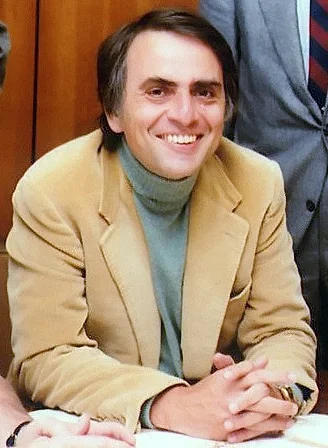
American astronomer and science popularizer Carl Sagan was born in Brooklyn, New York. He would become one of the most influential scientists of the twentieth century through his research and public education efforts.
Sagan’s television series “Cosmos” brought astronomy to millions of viewers worldwide. His passionate advocacy for space exploration and scientific literacy inspired generations of scientists and science enthusiasts.
1936 – Mikhail Tal Born
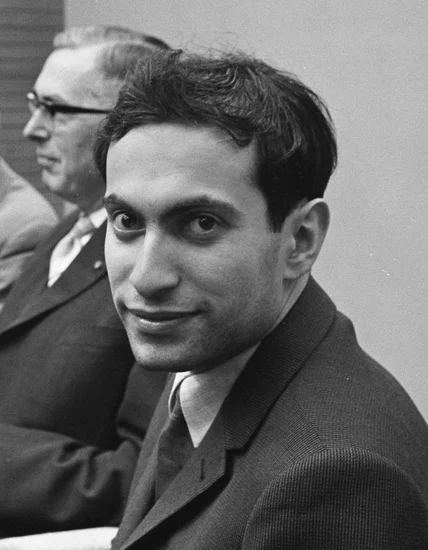
Latvian chess grandmaster Mikhail Tal was born in Riga. He would become known as the “Magician from Riga” for his brilliant tactical play and aggressive attacking style.
Tal’s spectacular combinations and sacrificial play revolutionized chess in the 1960s. His brief but memorable reign as World Champion showcased the artistic possibilities of competitive chess.
1922 – Dorothy Dandridge Born

American actress and singer Dorothy Dandridge was born in Cleveland, Ohio. She would break racial barriers in Hollywood by becoming the first African American woman nominated for an Academy Award for Best Actress.
Dandridge’s talent and beauty made her a star, but systemic racism limited her opportunities in the entertainment industry. Her pioneering achievements paved the way for future generations of African American performers.
1918 – Spiro Agnew Born

Future U.S. Vice President Spiro Agnew was born in Baltimore, Maryland. He would serve as Richard Nixon’s running mate and become known for his controversial speeches attacking the media and political opponents.
Agnew’s vice presidency ended in scandal when he resigned amid corruption charges. His downfall highlighted the importance of ethical conduct in high government positions.
Notable Deaths on November 9
1970 – Charles de Gaulle Dies

French general and statesman Charles de Gaulle died at his home in Colombey-les-Deux-Églises at age seventy-nine. The towering figure of twentieth-century French politics had led the Free French during World War II and served as President of France.
De Gaulle’s leadership during the war and his role in establishing the Fifth Republic made him one of France’s most significant historical figures. His death marked the end of an era in French and European politics.
1953 – Dylan Thomas Dies
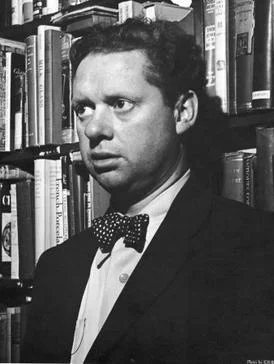
Welsh poet Dylan Thomas died in New York City at the young age of thirty-nine. His death from alcohol-related illness cut short one of the most promising literary careers of the twentieth century.
Thomas’s lyrical poetry and powerful readings had brought him international acclaim. His works like “Do Not Go Gentle Into That Good Night” continue to inspire readers and writers worldwide.
1918 – Guillaume Apollinaire Dies
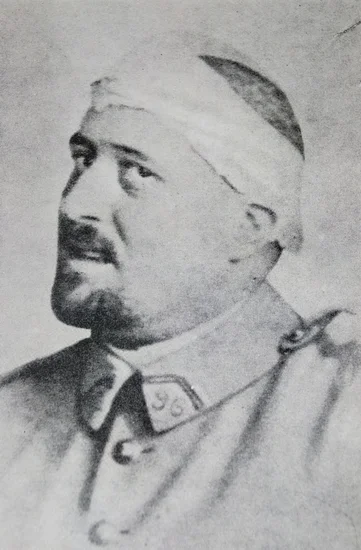
French poet and art critic Guillaume Apollinaire died in Paris during the influenza pandemic. His experimental poetry and support for avant-garde artists had made him a central figure in early twentieth-century modernism.
Apollinaire’s death during the final days of World War I symbolized the end of the pre-war artistic era. His innovative approaches to poetry and criticism influenced generations of writers and artists.
1940 – Neville Chamberlain Dies
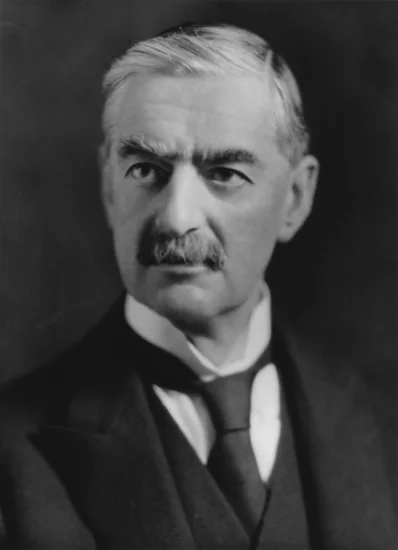
Former British Prime Minister Neville Chamberlain died at age seventy-one, just months after leaving office. His policy of appeasement toward Nazi Germany had defined British foreign policy before World War II.
Chamberlain’s death came as Britain fought for survival during the Battle of Britain. His controversial legacy reflected the complex challenges of international diplomacy during the rise of fascism.
2003 – Art Carney Dies
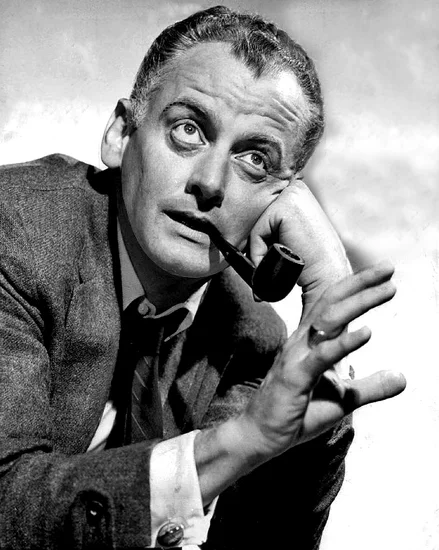
American actor and comedian Art Carney died at age eighty-five in Connecticut. Best known for playing Ed Norton on “The Honeymooners,” Carney had enjoyed a long career in television, film, and theater.
Carney’s portrayal of the lovable sewer worker made him a beloved figure in American television. His Academy Award-winning performance in “Harry and Tonto” demonstrated his range beyond comedy.
Holidays and Observances on November 9
World Freedom Day (United States)
World Freedom Day commemorates the fall of the Berlin Wall and the end of communist rule in Central and Eastern Europe. President George W. Bush proclaimed this observance to celebrate the triumph of freedom over oppression.
The holiday recognizes the courage of those who struggled against totalitarian regimes. It serves as a reminder of the ongoing importance of protecting democratic values and human rights worldwide.
Cambodia Independence Day

Cambodia celebrates its independence from French colonial rule achieved on this date in 1953. The national holiday honors King Norodom Sihanouk’s successful negotiations for sovereignty after nearly a century of French control.
Independence Day festivities include parades, cultural performances, and ceremonies at the Independence Monument in Phnom Penh. The celebration reinforces Cambodian national identity and pride in overcoming colonial domination.
Inventors’ Day (Germany, Austria, Switzerland)
German-speaking countries celebrate Inventors’ Day to honor the birthday of actress and inventor Hedy Lamarr. The observance recognizes both historical inventors and contemporary innovation in science and technology.
This holiday encourages interest in invention and scientific research among young people. It highlights the important contributions inventors make to economic development and quality of life improvements.
